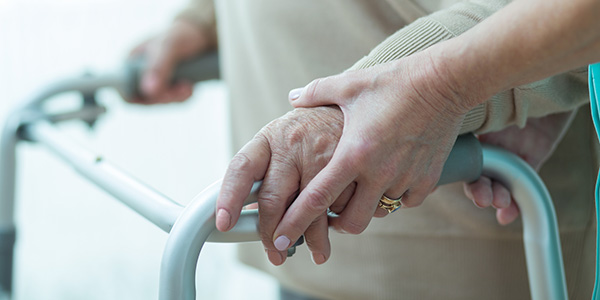
October 3, 2016, by Emma Thorne
Nottingham rehabilitation expert assists development of new guidance on treating stroke
A University of Nottingham academic has helped to shape new guidelines on the treatment of stroke, which place a greater emphasis on the role of early rehabilitation in the recovery of patients.
Professor Avril Drummond, Director of Research and Professor of Healthcare Research in the School of Health Sciences, was a member of the group which developed the latest clinical guideline, published by the Royal College of Physicians’ (RCP) Stroke Programme.
Professor Drummond, who also has a national role as Chair of UK Stroke Forum and Fellow of the College of Occupational Therapists, said: “Rehabilitation is again a key area in the new guidelines which extends across the whole patient and carer pathway.
“We are particularly pleased that, in this edition, there is more recognition of the length of the journey and thus there are recommendations for enhancing life after stroke. The role of the occupational therapist remains central in the multidisciplinary team.”
The new guidelines call for a greater emphasis on the early rehabilitation of stroke patients in their own homes rather than in hospital, and a more multidisciplinary approach to their recovery and longer-term rehabilitation. Research analysed by the Stroke Programme indicates that early supported discharge with continued access to rehabilitation after leaving hospital can improve the outcome for stroke patients and provides the greatest potential for people to return to living independently after a stroke. At a time when NHS finances are increasingly stretched, early supported discharge can also save money in the longer term through reduced disability after a stroke.
Produced by the RCP, the new advice forms part of the fifth edition of the National Clinical Guideline for Stroke, which sets the standard for stroke care in the UK. The new edition will be the first to be published online only, to enable free access for all clinicians.
Best treatment, earliest opportunity
In addition, the guidelines call for all patients to receive an urgent brain scan within one hour of being admitted to hospital.
A one-hour limit for diagnostic assessment, which is a major reduction in the time limit from the previous guidance of 12 hours, is recommended to identify the cause of a stroke and to ensure patients receive the best treatment at the earliest opportunity.
The guideline recommends that all acute stroke hospitals have access to brain scans 24 hours a day and it calls for local stroke services to be organised to minimise the time to treatment for the maximum number of people, even if this means that some hospitals currently providing acute stroke services hand over treatment to bigger regional centres. These changes will also help more people to receive ‘clot-busting’ treatments for acute stroke designed to reopen the blocked artery in the brain, treatments which reduce long-term disability for patients and care costs for the NHS.
The new guidance also includes:
- Guidance on new stroke treatments such as clot removal (mechanical thrombectomy), and blood pressure management for an acute brain haemorrhage
- Recommendations about the urgent treatment of suspected mini-stroke to improve prevention of a full stroke
- Research based guidance on the early mobilisation of stroke patients
- Research based guidance on the use of multidisciplinary teams to provide personalised care.
Dr Martin James, a stroke physician in Exeter and one of the editors of the new guideline said: “Stroke is a medical emergency and if outcomes for people with stroke are to be improved we need to minimise time delays in diagnosis and treatment. In recent years stroke care in the UK has improved dramatically. We have collected very good evidence that the earlier someone with a stroke gets specialist treatments then the better their chances of recovery.
“We have also learnt just how cost-effective treatments like clot-busting thrombolysis in hospital and early rehabilitation at home can be. With the NHS facing ever-increasing pressures on costs and hospital beds, we need to make sure we deliver treatments that help to get people with stroke back home living independently again.”
No comments yet, fill out a comment to be the first

Leave a Reply